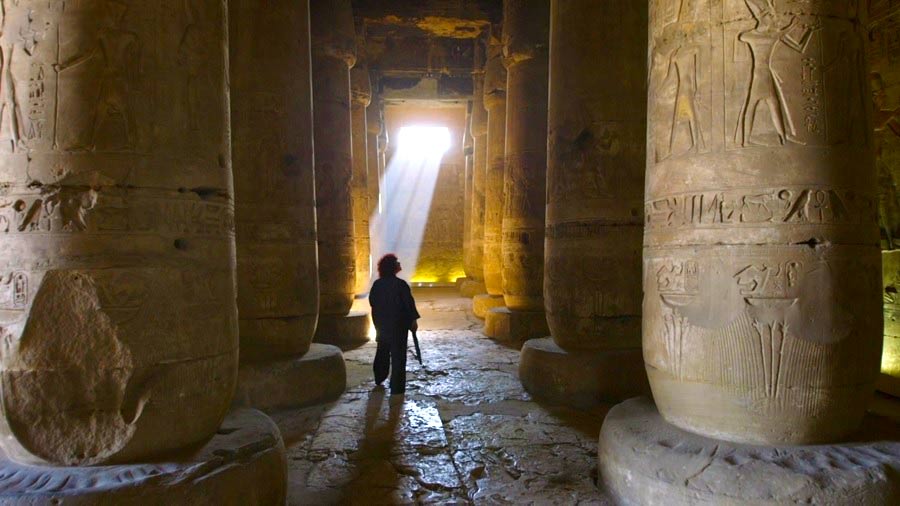Immortal Egypt episode 4 – Invasion: In the final episode, Joann discovers how Egypt‘s enemies exploited a country weakened by internal strife, ultimately leading to its destruction.
Joann leaves Egypt and journeys south to Sudan where she finds the remarkable story of the forgotten Nubian kings. For a century, they ruled Egypt from their southern homeland, even building their own pyramids to bury their kings.
Back in upper Egypt, Joann finds the next group of invaders, the Saites, discovering how they had taken the Egyptian tradition of mummification to new extremes by preserving millions of animals. Finally in Luxor temple, she discovers Egypt‘s saviour and founder of one of the greatest cities on earth – Alexander the Great.
Immortal Egypt episode 4 – Invasion
Nubia
Nubia is a region along the Nile river encompassing the area between Aswan in southern Egypt and Khartoum in central Sudan. It was the seat of one of the earliest civilizations of ancient Africa, as the Kerma culture lasted from around 2500 BCE until its conquest by the New Kingdom of Egypt under pharaoh Thutmose I around 1500 BCE. Nubia was home to several empires, most prominently the kingdom of Kush, which conquered Egypt during the 8th century BC during the reign of Piye and ruled the country as its Twenty-fifth Dynasty (to be replaced a century later by the native Egyptian Twenty-sixth Dynasty).
The collapse of Kush in the 4th century AD after more than a thousand years of existence was precipitated by an invasion by Ethiopia’s Kingdom of Aksum and saw the rise of three Christian kingdoms, Nobatia, Makuria and Alodia, the last two again lasting for roughly a millennium. Their eventual decline initiated not only the partition of Nubia into the northern half conquered by the Ottomans and the southern half by the Sennar sultanate in the 16th century, but also a rapid Islamization and partial Arabization of the Nubian people. Nubia was again united with the Khedivate of Egypt in the 19th century. Today, the region of Nubia is split between Egypt and Sudan.
Alexander the Great
At age 16, Alexander’s education under Aristotle ended. Philip waged war against Byzantion, leaving Alexander in charge as regent and heir apparent. During Philip’s absence, the Thracian Maedi revolted against Macedonia. Alexander responded quickly, driving them from their territory. He colonized it with Greeks, and founded a city named Alexandropolis.
Upon Philip’s return, he dispatched Alexander with a small force to subdue revolts in southern Thrace. Campaigning against the Greek city of Perinthus, Alexander is reported to have saved his father’s life. Meanwhile, the city of Amphissa began to work lands that were sacred to Apollo near Delphi, a sacrilege that gave Philip the opportunity to further intervene in Greek affairs. Still occupied in Thrace, he ordered Alexander to muster an army for a campaign in southern Greece. Concerned that other Greek states might intervene, Alexander made it look as though he was preparing to attack Illyria instead. During this turmoil, the Illyrians invaded Macedonia, only to be repelled by Alexander.
